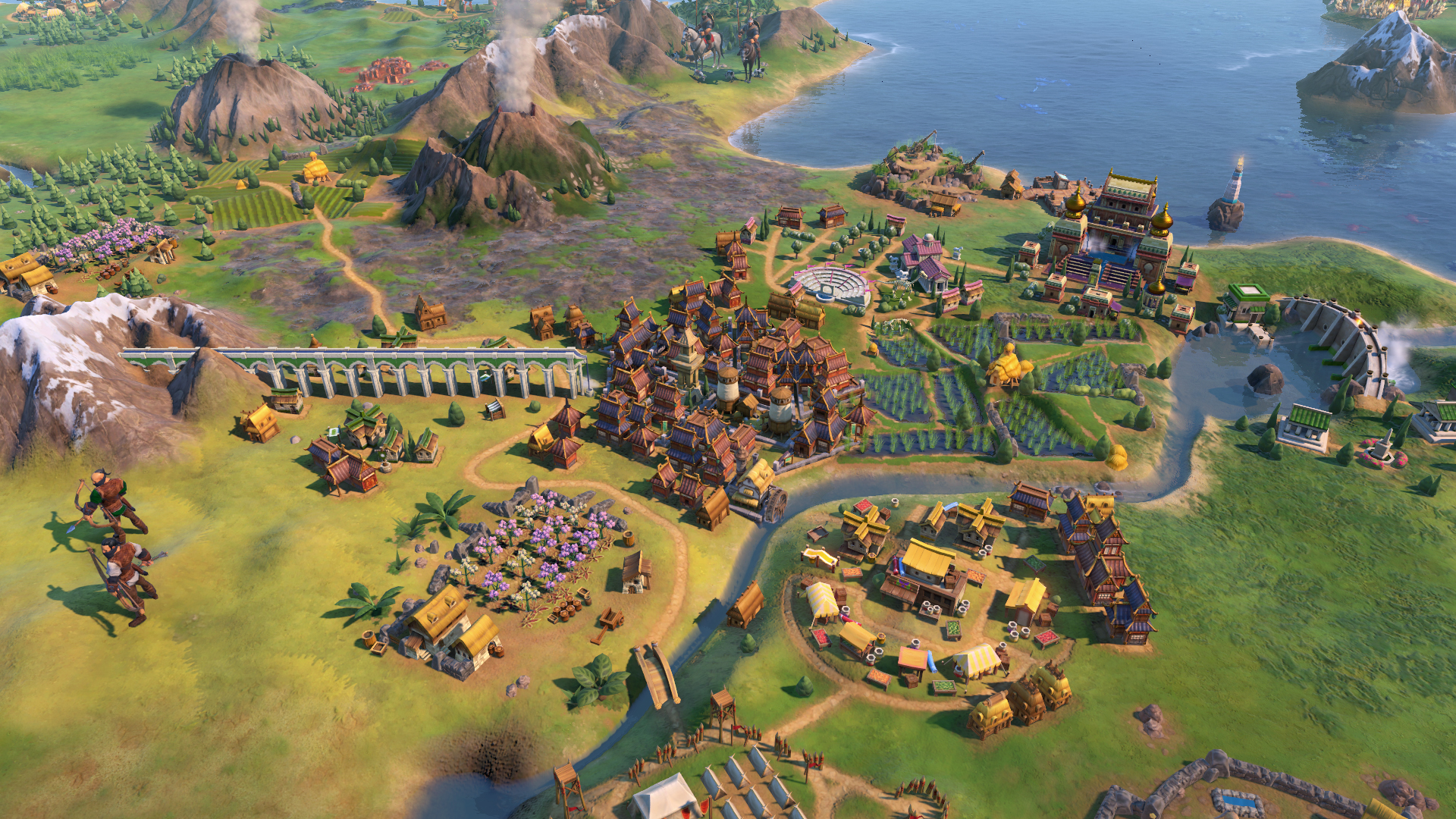“The world has evolved, and this game has evolved with it.”
If you missed Part 1 of my Sid Meier’s Civilization VI: Gathering Storm DLC review, you can find it here
Civilization is, of course, only as good as its civilisations are. Yes; that amalgamation of American and UK English made me cringe too.
In Gathering Storm we see the introduction of eight new playable civilisations; perhaps the most diverse and quality-specific civilisations the game has ever seen. Far from the simplicity of Civ V’s fairly simple benefits for picking a civ, for example Japan’s boon of combat units fighting at their full strength in spite of any damage they might have taken, Civ VI’s latest collection of civs come with a flurry of advantages which are far more complex than those which have come before…

The best starting point for this review, perhaps, is to consider Kupe. Kupe’s Maori civilisation start the game at sea; in fitting with the historical lore of the real-life civilisation. The Maori gain benefits to science and culture before they settle their first civilization, and naturally start with the ability for all land units to embark at the very beginning of the game to make their bonus possible. This applies even if you settle your first city in the first couple of turns. Stark benefits, however, are met with advanced gameplay here. The Maori’s belief in conservation limits what the civ can do. Great writers, for example, are completely off the table. As such, this certainly wouldn’t be the best choice for a new player, but for a learned veteran the Maori present an alternative to the standard starting situation which other civs offer. It is not a wild shake-up of the meta, but it adds something genuinely new and interesting to the proceedings which long-time players haven’t seen before. This makes the Maori the most interesting new civilization in Gathering Storm, even if they aren’t ultimately your favourite.

Diving in with the best news first does not mean, by any stretch, that the other new civs in the game are bad. In fact, Gathering Storm encourages players to spend their pocket money by offering a lot of new, “first time ever in Civ” content. For example, the introduction of Eleanor of Aquitaine sees the first leader who can head one of two different civilisations; either England or France. Eleanor’s benefits are similar for each but adapt to the flag she stands for. In both cases, these largely revolve around loyalty and great works. Another notable “first” is Pachacuti’s Inca, who gain distinct benefits for working on and/or near mountains. In particular, the Qhapaq Nan unique improvement for Pachacuti’s builders allows the civ to essentially teleport through mountain tiles; quite the game changer for some players! The ability to work mountain tiles and construct terrace farms each ensure that production is a key feature of Pachacuti’s civilisation.
Phoenicia (Dido), Ottoman (Suleiman), Sweden (Krisitina), Mali (Mansu Musa), Canada (Wilfred Lurier) and Hungary (Matthias Corvinus) round out the new civs offered in Gathering Storm. Allowing for Eleanor’s dual-leadership options, that makes for a total of ten additions to the base game package; very much sweetening the expansion’s deal when it comes to the steep asking price (£34.99 at the time of writing). A trend amongst all of these civilisations, whose benefits range from production, trade and culture to the new diplomatic favour system, is that their unique abilities, improvements and units are more complex than those which have come before. Distinct pros are met with challenging cons for the player to overcome. Balance has come into play to allow for more diverse, albeit more specific merits when choosing your civ, as opposed to basic and minor advantages.

Naturally, each civ’s suitability to the player is circumstantial and individual, making their detailed Civopedia entries a more suitable measure for what will work best for you than my brief opinion on each. That being said, every new civilisation in Gathering Storm is worthy of your time and attention. Despite some being more intrinsically interesting than others, as I have noted above, all of them are good in their own way, and none feels out of place or overshadowed by the others. Equally, playing against the new civs, each with their own agendas for you to appease or oppose, feels equal in challenge to those which already exist in the game. In this sense, Gathering Storm’s additional content blends into the main game subtlety and naturally, as we would have hoped.
To close out this review, it is worth taking note of the new scenarios presented in Gathering Storm as well. The single player offering largely speaks for itself. The Black Death campaign sees you leading your nation through the perils of one of history’s greatest and most deadly epidemics. You face threats to your citizens’ lives and impacts to your economy and religious dominance in this mission, which plays as one of Civ VI’s most challenging to date. A dark theme only enhances the sense of struggle and impending threat and is a perfect setting to make long-time players of the game feel that the pressure is truly on.

For players who prefer a military challenge over the people-management side of Civilization, War Machine might be more up your alley. You will need to acquire a friend or willing acquaintance for this multiplayer-only mission, which sees one player take on the role of an invading WWI German army whilst the other assumes the position of France. As France, you must attempt to stop the German forces from capturing the city of Paris, whilst as Germany you must attempt to achieve complete your occupation of the capitol city. This campaign is all-out dominance and will require an intricate knowledge of Civ’s military ins and outs in order to achieve victory. That being said, it is a perfect theme and execution once again of this element of the impressive strategy game.
For me, Gathering Storm’s major appeal lies in its new game mechanics, but the new civs and scenarios help to sweeten an already delectable deal. There is something for everyone here, with ten new civilisations offering a wide range of player benefits and a series of enticing “first time in civ” options for long-time fans of the franchise to explore. The two new scenarios offer distinct and challenging campaigns for players who are looking for something a little more pointed and different from the standard Civ gameplay, too; whether you are fairly new to the series or have been around since the very beginning. As a package, despite its hefty price tag for an expansion, Gathering Storm ensures that what it puts on the table is worthy of your hard-earned cash. For any Civ VI fan who has enjoyed significant time in the game, Gathering Storm is easy to recommend. The world has evolved, and this game has evolved with it.








You must be logged in to post a comment.